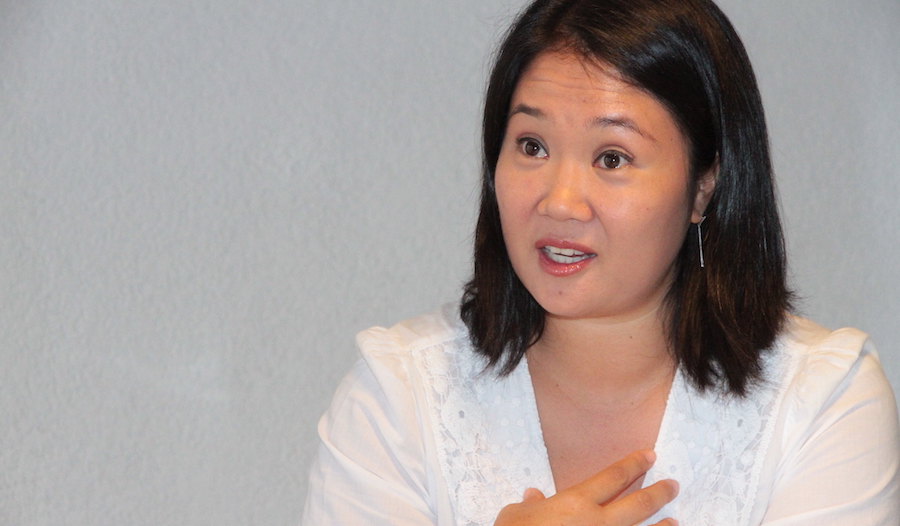Fujimori looks to speed up projects to tap copper riches in Peru

Peruvian presidential candidate Keiko Fujimori would support energy and mining projects if elected, a campaign adviser said, drawing a stark contrast with her left-wing rival.
Her government wouldn’t seek to renegotiate contracts at the Camisea gas deposit and would push for the go-ahead of the Tia Maria and Conga mining projects that have encountered community resistance, adviser Rafael Belaunde said in an interview. Fujimori would focus on resolving community issues to attract more investment, he said.
The goal is to help “set new projects in motion, with a fundamental component being that the populations — particularly the populations around the areas where these activities occur — feel the benefits,” Belaunde said.
Fujimori’s adviser said she would push for the go-ahead of the Tia Maria and Conga mining projects
Fujimori, who is out on bail for alleged corruption and is the daughter of a jailed former president, will face Pedro Castillo in a June 6 runoff vote that will pit two opposing visions for the way out of pandemic-induced economic stress. The election result, which a weekend poll showed is too close to call, will reverberate across metal markets given the world is relying on Peru to help meet growing copper demand in a clean-energy transition. The nation is the second-biggest supplier of the wiring metal and a major producer of zinc, silver and gold.
Castillo, who defied polls to win the first-round vote, has vowed to nationalize Camisea and raise taxes on mines, as well as seek a referendum on drafting a new constitution. His plans have spooked investors, though he’s likely to face stiff opposition from a divided legislature and has distanced himself from his party’s most hard-line proposals.
Direct payments
A Fujimori administration would channel 40% of the mining canon into payments to communities, Belaunde said. The money would be sent directly to people’s bank accounts and could amount to about 2,000 soles ($540) a year depending on the region.
It would also seek to improve the time-line and communication surrounding the consultation process before mineral exploration and exploitation, Belaunde said. The nation’s current environmental regulations are already rigorous enough, the adviser said.
“Peru is a country with a massive mining potential,” Belaunde said. “Taking care of the social conflict problem and improving the efficiency of how mining income is spent I think will solve the bulk of the issues.”
Fujimori’s government would also support oil exploration projects in the Amazon to leverage the Talara refinery in the country’s north, Belaunde said. Indigenous communities oppose such initiatives on concerns of environmental harm.
“The government should promote putting its oil potential to work,” as long as there’s community support and the environment is protected, he said.
(By Maria Cervantes and Daniela Sirtori-Cortina)
{{ commodity.name }}
{{ post.title }}
{{ post.date }}




Comments